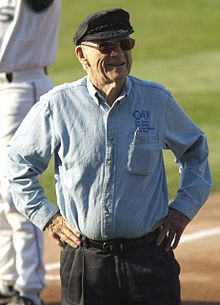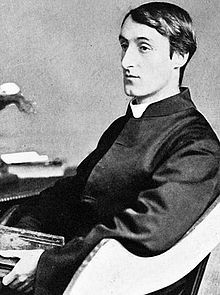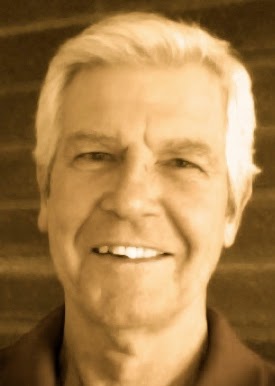Wednesday April 8 – Color Blind Angel, “you laid your young life down” (blues singer Robin Rogers – ✝ Dec 19.2010)
Today’s post is unusual. Last Sunday’s Detroit Free Press article about Viola Liuzzo and the park named for her touched several months of conversations with Julie Hamilton (Personal Counseling/Wellness Coordinator UDM School of Dentistry) about the Park. We talked again Monday and decided to dedicate today’s post to Viola and the park. http://www.freep.com/story/life/2015/04/04/metro-detroiters-unite-honor-viola-liuzzo/25300385/
Viola Liuzzo’s park is a story close to the heart of Detroit, the city, and of the university. As Detroiter Libbie Rutherford says: “…when you have more eyes on a park and people are using it, the crime rate goes down.” Parks matter. Their names hold stories that tell the courage and grace of people who have lived here before us.
Detroit honors itself by setting aside some days this week to hold Viola, this amazing brave woman, up into the light. I drove west on 7 Mile to Greenfield yesterday and found my way to the Viola Liuzzo park. It’s small, as parks go, and can still could use some new equipment, but is cared about: a place in its neighborhood.
We hope to tease you into reading the free press article from Sunday and listening to the blues singer Robin Rogers’ 5 minute ballad for Viola; Non-blues fans will probably be startled by RR’s classic grace and power. By the end of her 5 minutes, you may grieve, as I do, that this citizen of Detroit died too young riddled with bullets a half century ago. The song Rogers wrote and sings, “Color Blind Angel,” is just below and is our post.
I also asked Julie Hamilton to give us background about all this in a postscript.
john st sj
Today’s Post
https://www.youtube.com/watch?v=x1f9H6C4cFU (robin rogers: 5:24 minutes)
Color Blind Angel
Viola, Viola, you laid your young life down.
From Selma to heaven, 3 Ks took you out.
Color blind angel battled bigotry.
Viola, Viola lives on in history.
Verse 1:
Left your home in the winterland, southbound with a dream.
Edmund Pettis bridge, violence on the screen.
Freedom summer of ’65 is where you had to be,
Stand up for your fellow man, erase hypocrisy.
(Chorus)
Verse 2:
March 25, Alabam, along a lonesome road,
Shots rang out on a hate-filled night, now the world would know:
Motor City mother, lily-white and sincere,
Gave her life for the civil rights, fought against the fear.
(Chorus)
Verse 3:
Walkin’ for the right to vote seems old-fashioned now,
Martin’s vision reigns supreme, all colors can be proud.
The legacy of all that fought goes on eternally.
Women and men from walks of life live on in history.
Historical Background for this week in northwest Detroit
Who was Viola: Viola Liuzzo was a 39 year old mother of five living on Detroit’s west side when in 1965 she watched news reports of attacks on civil rights marchers in Selma, Alabama, as they attempted to cross the Edmund Pettus Bridge. Soon after, she heard the call from Dr. Martin Luther King, Jr. to come to Selma and join the march. Something happened in Viola as she listened. She answer Dr. King and went to Selma. As a member of the NAACP, she knew the risk. She asked her best friend, Sarah Evans, a black woman, to watch over her children if something happened to her while in Selma.
Five hours after the successful March on Selma, Viola Liuzzo was killed by KKK members, one of whom was an FBI informant. She was shot to death while giving rides to other civil rights workers who had completed the historic march. Her family’s devastation was further traumatized when crosses began to be burned in their front yard, death threats arrived, and stories began to emerge in the press defaming their mother’s character and questioning her stability. They later learned these stories came from FBI Director, J. Edgar Hoover’s office. For over two years they were forced to have armed guards at the front and back doors of their home. Viola was one white woman who died during the civil rights movement. No one was ever convicted in her murder.
Why we were moved by Viola: My friend, Colette Mezza, and I had both heard the story of Viola on WDET/NPR two years ago. We were touched by how deeply committed to her values she was, and how she was willing to risk everything for her fellow citizens. The decision to leave her children and drive to Selma, has to this day triggered strong reactions, questioning why she would do such a thing. To hear her children today explain it…she wanted to make the world better for them. She ended up doing just that. A few months after her ultimate sacrifice, the Voters Rights Act was passed.
The Viola Liuzzo Park: The Viola Liuzzo Park is located in the area of Greenfield and Eight Mile Road. It was named in honor of Viola in the early 1970’s. Over the years, it has become tired and dilapidated, like many residential areas of Detroit. People living nearby have been taking care of the park and joined us, along with members of the Gospel Tabernacle Church on Greenfield (at Vassar), in developing plans to restore it. We have been quietly meeting in the basement of the church, and over the months many people have stopped by to join the effort, including Dorothy Aldridge, a former member of SNCC. The miracle of this project is that it has become something much more than a park restoration…it has become the culmination of an amazing blend of citizens from many backgrounds and experiences, passionate about Viola’s legacy and the city of Detroit. The restoration of the park is also about healing… for the Liuzzo family, the neighborhood, the city, and, yes, even the people who have met each other working to restore this brave woman’s park. We have used Viola’s values (unity, integrity, respect, compassion, equality, and lightheartedness) to guide us as we move forward.
VIOLA LIUZZO WEEK CALENDAR OF EVENTS
- 4/10 1:30 p.m. – Honorary Doctorate award ceremony for Viola Liuzzo. Wayne State University
- 4/11 1:00 p.m. – Prof. Michael Placco speaking: Viola Liuzzo: A Passionate Undertaking at Cultural Center at Macomb Community College 44575 Garfield Road (at Hall Road), Clinton Twp., MI 48038 (call 586.445.7348).
- 4/11 4:00-6:00 p.m. – Celebration of Friends of Viola Liuzzo Park
- Celebration of what would have been Viola Liuzzo’s 90th birthday
- Fitness activities and walk
- Announcement of ground breaking for park renovations
- 4/12 11:00 a.m. First Unitarian Church – Sermon; some of or all of the Liuzzo family will speak.
- 4/12 2:00 p.m. – Dorothy Turkel/Frank Lloyd Wright House Fundraiser. Tickets $60 – $1000. Dean Robb will speak at 3 p.m.
- 4/13 5:30 p.m. – WSU Morris Dees & Dean Robb presentation on Viola Liuzzo
- 4/14 7:00 p.m. – Gospel Tabernacle Church Fundraiser sponsored by MCHR. $5.00 donation at the door.










